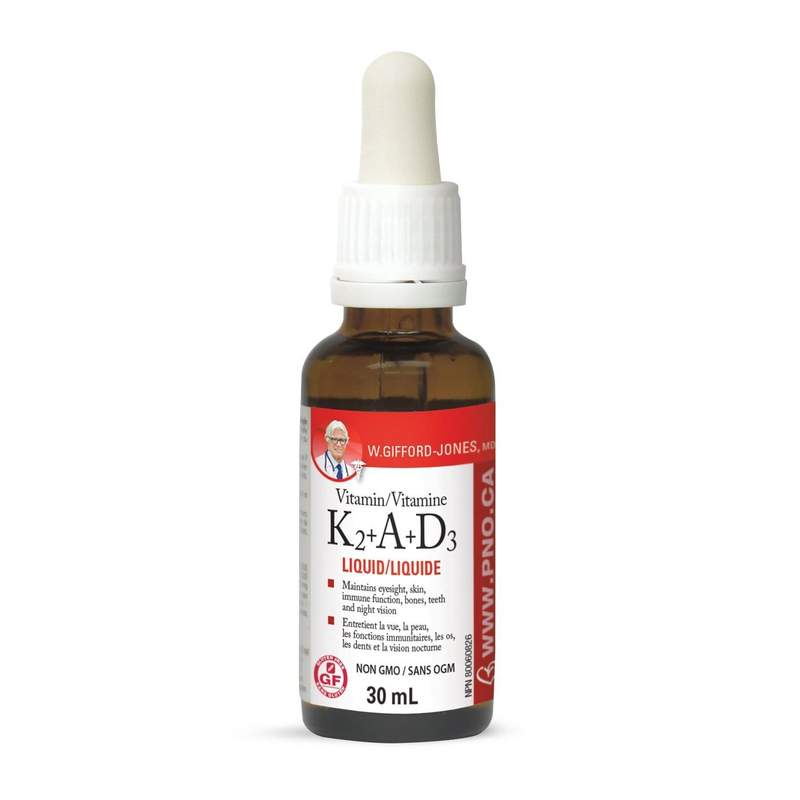

The combination of vitamins K and D has been shown to significantly increase bone mineral density (BMD) better than either alone. High-dose vitamin K has been shown to significantly reduce fractures in double-blind research of postmenopausal women with osteopenia. A review of seven controlled studies confirmed that high-dose vitamin K reduces the risk of fractures, and large amounts of vitamin K have been shown in preliminary research to correlate with greater BMD and to increase bone formation in some women. MK-7, the form of vitamin K in Vitamin K2+A+D3 has been shown to increase bone mineralization, to significantly reduce loss of BMD, improve bone strength and decrease risk of fracture in placebo-controlled research. K2 has also been shown to improve the ratio of bone formation to bone breakdown. A meta-analysis of thirteen controlled studies found that long-term high-dose vitamin K supplementation reduces bone loss.
Vitamins D and A benefit the eyes. People with the highest vitamin D levels are 36% less likely to have macular degeneration. Vitamin A deficiency may cause, and supplementation may improve, night blindness. Doubleblind research shows that high-dose vitamin A can speed up recovery of light sensitivity and adaptation to dark.
Recommended dose (children (4 years & up) and adults): 1 serving (0.25 mL) daily or as directed by a health care practitioner.
